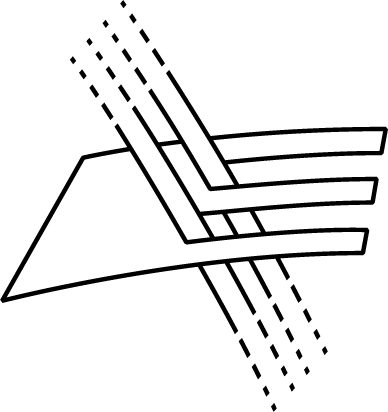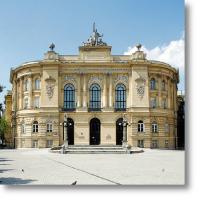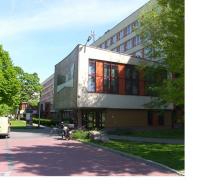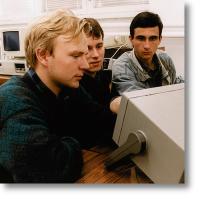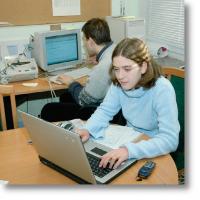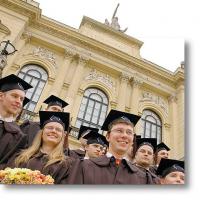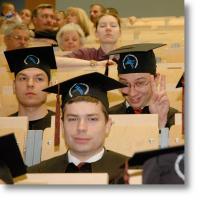Who We Are
Article index
University
The Warsaw University of Technology is well known for its excellent academic staff. All the lecturers have outstanding research accomplishments and a strong commitment to teaching. As the University has an exceptionally Iow ratio of undergraduate students to professors (about seven to one), the students have many opportunities for close interaction with their instructors.
The programs of study taught in Polish follow a typical continental-European curriculum; students pursue four-year programs that lead to a degree equivalent to the Bachelor of Science in the selected area of engineering. Then a two-year program can lead to a degree of Master of Science in engineering. The academic year is split into two semesters, beginning in the first week of October and in the last week of February, with a three-month summer vacation period.
The Warsaw University of Technology is involved in active cooperation with many foreign academic and research institutions. About 100 members of our academic staff are currently working as experts for international organizations or are taking visiting positions at foreign universities and research institutes in more than 20 countries. Numerous international technical conferences and symposia have been organized at the University. Groups of Polish students frequently go abroad to enhance their practical skills. Extensive international contacts allow the academic staff and students to be kept familiar with state-of-the-art developments in their field of study and research.
The University is becoming more and more a cosmopolitan place. Each year we welcome students of over 40 nationalities, from all over the world. Currently, about 300 undergraduate and 200 graduate international students are attending the classes at the Warsaw University of Technology. As most courses are taught in Polish, the international students are provided with a one-year intensive language training. In the academic year 1993-1994, for the first time the University offered a number of engineering programs of study taught in English. Today, about 700 students attend the courses taught in English.
Faculty of Electronics and Information Technology
The Faculty, formerly part of the Faculty of Electrical Engineering, was established as a separate school in 1951. Since that time, it has been growing steadily, both in its facilities and in the variety of and depth of its educational
and research programs. Currently, it has about 3600 students. They are served by more than 300 members of the academic staff, including 19 full professors, 52 associate professors, and 175 assistant professors, as well as 170 members of technical and administrative staff. The Faculty is known to attain the highest teaching standards and enjoys worldwide recognition for its research. Both the teaching and administrative staff are continuously encouraging measures aimed at consolidating this well-deserved position. Courses are constantly reviewed and revised to keep them up-to-date and relevant to the demands of students and employers.
The Faculty of Electronics and Information Technology has a wide variety of educational and research facilities. A large number of spacious and well-equipped laboratories in all the subject fields studied here are available. More than 400 workstations and personal computers, running hundreds of computer-aided design programs and other software tools, directly support teaching and research. The computer resources are connected by Ethernet with a gateway for access to other University facilities and to national and international networks.
The Faculty has seven small libraries that house more than 90,000 volumes and serve specific areas of electrical and computer engineering. These local libraries are part of the University Library System that contains approximately 1,400,000 volumes and 3,300 current periodicals. About 70% of the books and journals available in the libraries are in English.
In the dedicated Foreign Language Interactive Learning Laboratory, students have access to audio and video equipment, a wide range of computer-assisted language learning materials, as well as books, newspapers and magazines. Courses in English, German, French, Italian and Russian are offered at elementary, intermediate, and advanced levels. Special courses in Polish are also available to international students.
The typical form of studies at the Faculty of Electronics and Information Technology has been a four-year program leading to the Bachelor’s degree. The next level of education, a two-year program leading to the
Master’s degree has also been very popular. Many students have continued their education in programs leading to the Doctor’s degree. In addition, many short, vocational or continuing education courses and programs have been offered.
There are traditionally many more candidates who apply for studies than the Faculty can admit. The candidates with the best scores from high schools are admitted. As all students are both academically and intellectually outstanding, studying at the Faculty of Electronics and Information Technology is an exceptional opportunity for academic and intellectual growth.
In the academic year 1990–1991, the Faculty restructured its undergraduate curriculum by introducing a new system of studies, giving students a lot of flexibility in planning their individual programs and course loads for each semester, and in some cases, selecting course instructors. The admission, registration, course and examination scheduling, assignment of classrooms, and other administration procedures have been fully computerized.
The reorganization of the Faculty has been conducted with the active participation of students. Students play a significant role in the decision-making process, serving as full voting members of various committees. The organization of all students, Student Self-Government, through its annually elected representatives, is given authority and sole responsibility to act in specific matters affecting education and student life.
The Faculty attracts students from all over the world and maintains relations with academic and research institutions in more than 30 countries. Based on formal agreements regarding scientific cooperation with international organizations and individual universities, many joint research projects are being carried out. Student and academic staff exchange programs are also conducted. In addition, through various less formal links, out teachers and researchers share their knowledge and experience with their colleagues working at academic and research centers in many countries.
The number of foreign institutions cooperating with the Faculty of Electronics and Information Technology is growing very fast; new links are being established almost every day.

